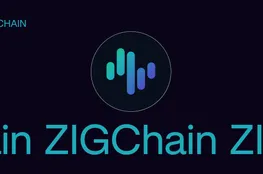JPMorgan Chase is making a significant move into the digital asset space with the filing of a trademark application for its new crypto platform, JPMD, reflecting Wall Street’s growing embrace of cryptocurrencies. This strategic development, announced on Sunday and submitted to the U.S. Trademark and Patent Office, underscores JPMorgan’s commitment to expanding its offerings within the rapidly evolving world of digital assets. The JPMD platform is designed to provide a comprehensive suite of services, including the facilitation of trading, exchange, transfer, and payment services specifically tailored for digital assets. Furthermore, the platform will encompass the issuance of digital assets, positioning JPMorgan as a key player in the creation and distribution of these assets. This move comes as numerous traditional financial institutions are actively exploring opportunities within the crypto market. Many are considering the issuance of stablecoins, while asset managers are introducing crypto investment products and investigating the potential of asset tokenization – a process that involves representing ownership rights on a blockchain. JPMorgan’s CEO, Jamie Dimon, a long-time critic of cryptocurrencies, recently announced a notable shift in the bank’s stance, permitting clients to purchase Bitcoin (BTC). This decision reflects a strategic adaptation to the market’s growing prominence. Beyond simply allowing purchases, JPMorgan has also taken steps to integrate Bitcoin into its operations, most recently by offering Bitcoin ETFs for loan collateral to its customers. These ETFs provide a secure and regulated way for clients to leverage Bitcoin within their borrowing activities. Reports also indicate that JPMorgan was among the U.S. banks involved in discussions regarding the launch of a stablecoin, highlighting the bank’s proactive engagement in this area. JPMorgan’s existing private blockchain payments network, KyNexis, further demonstrates the bank’s technological capabilities and commitment to innovation. KyNexis currently processes over $2 billion in daily transaction volume, showcasing its operational scale and efficiency within the payments ecosystem.
The development of JPMD represents a deliberate and strategic effort by JPMorgan to capitalize on the burgeoning digital asset market, leveraging its established financial expertise and technological infrastructure. This move signals a fundamental shift within the bank, demonstrating a willingness to embrace innovation and explore new opportunities within this dynamic sector. The bank's approach, coupled with its existing infrastructure, positions JPMD as a potentially transformative platform within the broader financial landscape, likely attracting institutional investors and further solidifying the integration of digital assets into traditional finance. JPMorgan’s existing private blockchain payments network, KyNexis, further demonstrates the bank’s technological capabilities and commitment to innovation. KyNexis currently processes over $2 billion in daily transaction volume, showcasing its operational scale and efficiency within the payments ecosystem. The JPMD platform is designed to provide a comprehensive suite of services, including the facilitation of trading, exchange, transfer, and payment services specifically tailored for digital assets. Furthermore, the platform will encompass the issuance of digital assets, positioning JPMorgan as a key player in the creation and distribution of these assets. This move comes as numerous traditional financial institutions are actively exploring opportunities within the crypto market. Many are considering the issuance of stablecoins, while asset managers are introducing crypto investment products and investigating the potential of asset tokenization – a process that involves representing ownership rights on a blockchain. JPMorgan’s CEO, Jamie Dimon, a long-time critic of cryptocurrencies, recently announced a notable shift in the bank’s stance, permitting clients to purchase Bitcoin (BTC). This decision reflects a strategic adaptation to the market’s growing prominence. Beyond simply allowing purchases, JPMorgan has also taken steps to integrate Bitcoin into its operations, most recently by offering Bitcoin ETFs for loan collateral to its customers. These ETFs provide a secure and regulated way for clients to leverage Bitcoin within their borrowing activities. Reports also indicate that JPMorgan was among the U.S. banks involved in discussions regarding the launch of a stablecoin, highlighting the bank’s proactive engagement in this area. JPMorgan’s CEO, Jamie Dimon, a long-time critic of cryptocurrencies, recently announced a notable shift in the bank’s stance, permitting clients to purchase Bitcoin (BTC). This decision reflects a strategic adaptation to the market’s growing prominence. Beyond simply allowing purchases, JPMorgan has also taken steps to integrate Bitcoin into its operations, most recently by offering Bitcoin ETFs for loan collateral to its customers. These ETFs provide a secure and regulated way for clients to leverage Bitcoin within their borrowing activities.
























